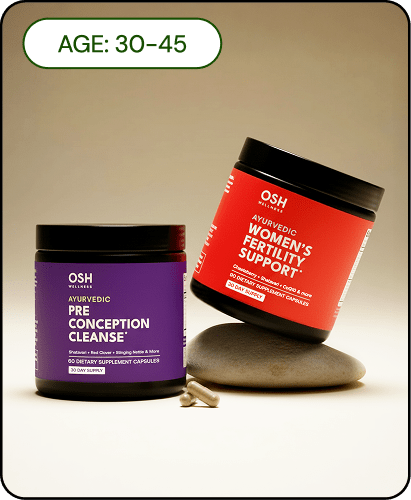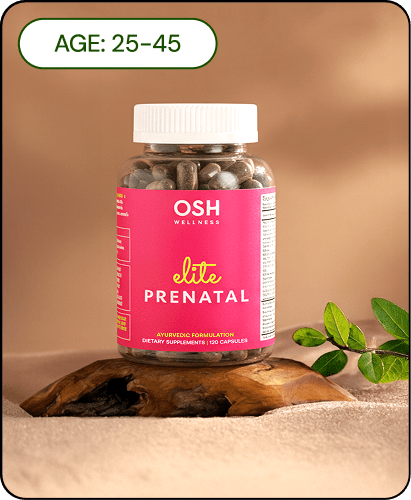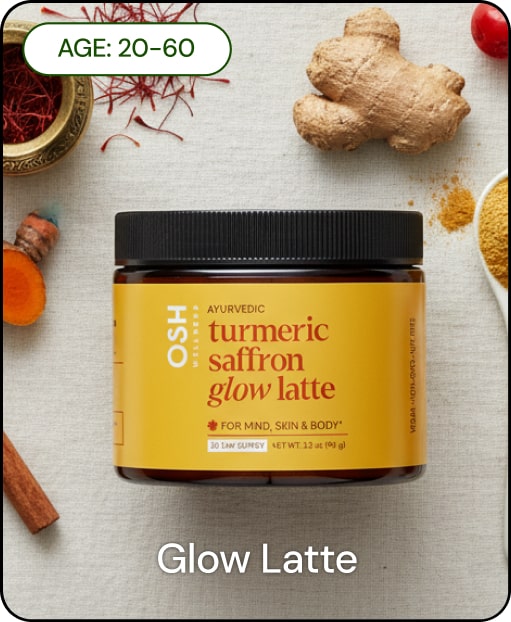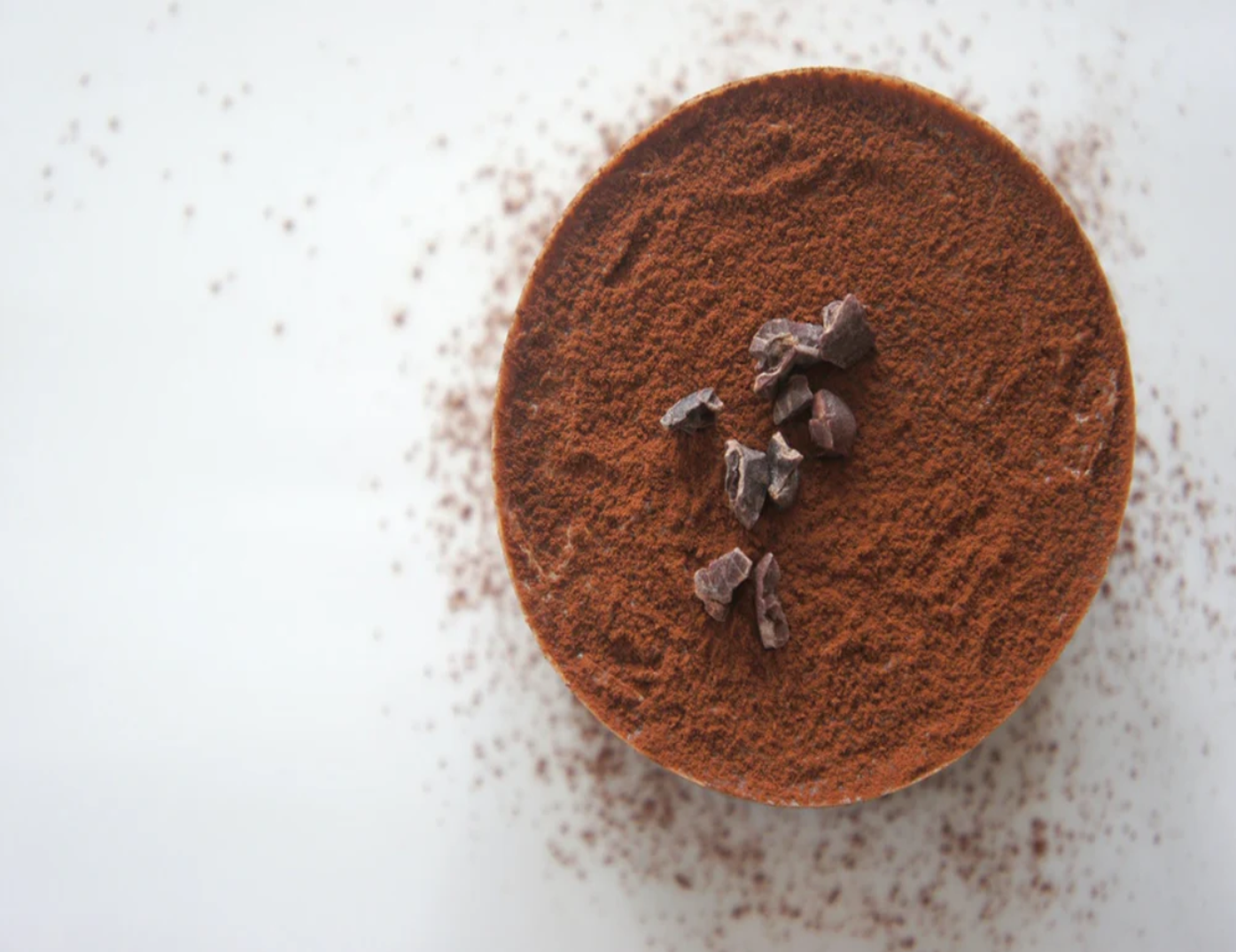Coconut is a miracle fruit both during pregnancy and postpartum. From its oils to its water and pulp, this tasty treat has it all.
Young tender coconuts are full of coconut water, a soothing and cooling liquid used to pacify high Pitta. As the pulp begins to develop in middle-aged coconuts, the nutrient content increases. Mature coconuts still retain these nutrients and also have hydrating coconut milk. Coconuts are incredibly rich in:
- Vitamins A, B, and C
- Phosphorus
- Minerals
- Protein
No matter which stage of the coconut you consume, your body will benefit. And, no matter which stage of motherhood you are in, the coconut is an excellent dietary addition.
Coconut During Pregnancy
During pregnancy, coconut flesh makes an excellent snack. The meaty pulp found in the nut is an ideal source of healthy fats.
When your body is bedding down your baby and providing life-sustaining nutrients, you need an extra dose of healthy fats. The fat contained in coconuts is medium-chain triglycerides; these are more easily broken down by the body than longer-chain triglycerides. This is important because they are then available for use as an instant energy source.
Not feeling like munching on coconut flakes? The creamy milk of coconuts is plentiful in fats and nutrients, too. Instead of drinking it straight, try adding it to curries and soups.
Coconut butter is yet another way to receive these healthy fats and acids. Plus a dose of amino acids, calcium, and magnesium. All vital nutrients are needed during pregnancy.
They don’t extract coconut butter like they do the coconut oil, but instead make it directly from the meat. You can eat it straight from the jar! Alternatively, melt it over berries or sweet potatoes, toss it with a protein like chicken, or spread it over toast.
Though coconut water does not contain the essential fats discussed above, it is amazing for hydration.
Moms-to-be need plenty of fluids to keep their bodies functioning while providing for two. Coconut water is a sweet way to manage your thirst and stay topped up on fluids.
Finally, coconut oil has become a recent popular trend. But coconut has long been used in an Ayurvedic diet, prized for its beneficial properties. Taking a spoonful of raw coconut oil has been used to calm indigestion, acid reflux, and heartburn. Ayurvedic medicine believes it may help pacify aggravated Pitta, in turn, relieving stomach disorders.
Coconut oil may also be applied to the skin. It is incredibly soothing and considered a healer in Ayurvedic medicine.
Expectant mothers sometimes turn to this nourishing oil when facing the challenges of a rapidly expanding belly. Coconut oil can help prevent stretch marks, moisturize the skin, and relieve itching.

Coconut for the Postpartum and Breastfeeding Mother
The wonderful coconut has a great deal to offer postpartum mothers as well. By incorporating all that the coconut has to offer into your diet, you can nourish yourself and your little one.
The fats found in the flesh, in the form of medium-chain triglycerides (MCTs), are an ideal source of “healthy fat.” Some even tout MCTs as a weight loss aid, as they can help burn off stored fat. While immediate postpartum isn’t the time to focus on dieting, working to maintain a healthy weight is still important.
The milk of coconuts is packed full of fats and nutrients, proving very helpful in producing rich breastmilk. The nutritional content of your breastmilk may increase thanks to the lauric and capric acids found in coconut milk. These acids are often responsible for breastmilk's antimicrobial properties, providing an essential boost to your baby’s immune system.
The fats of coconut milk can help increase both a nursing mom's energy and immune system, and help stabilize her blood sugar levels. Want to incorporate these super healthy fats into your diet? Use coconut flakes in your cereal, oatmeal, on yogurt, or in a trail mix. Add a splash of coconut milk to your favorite smoothie!
Deemed “Mother Nature’s sports drink,” coconut water is an ideal way to stay hydrated during any stage of motherhood. Drink it straight from the container, add it to smoothies, or combine it with other fruit juices.
Aside from being refreshing, it also has a few other helpful properties. With each glass, you receive more potassium than a banana, making it an excellent way to receive your intake of this essential vitamin. It also has calcium, magnesium, and restorative electrolytes.
Coconut oil should be a staple in your postpartum medicine chest. It works wonders on cracked nipples. Not only does it heal them, but it also wards off bacteria with its antimicrobial properties. The best part is that it is usually safe for a nursing baby to ingest, though it is still recommended to thoroughly wash your nipples before breastfeeding.
Some lactating mothers rely on the oil to help prevent thrush, as it can combat the yeast that causes the condition. Rubbing the oil on your nipples as well as inside your baby’s cheeks may be quite effective.
The oil is also considered a wonderful beauty treatment in many cultures. Apply it to your hair as a conditioner. You may find it especially beneficial during the postpartum hormone shift when women’s hair is prone to drying and breakage. Your complexion can reap the rewards as well when you use it as a facial moisturizer.

Miraculous Coconut Oil and Your Baby
Coconut oil isn’t just for mothers, though. You can use it on your baby as well! This oil is a super ingredient when it comes to treating a variety of skin conditions. Effective at calming diaper rash, feel free to swipe it on tender tushies after every change. Many moms find it helpful in treating cradle cap too. It can gently be rubbed onto your little one's scalp post-bath.
Natural and chemical-free, coconut makes an excellent infant massage oil. It is perfect for delicate skin and non-irritating. Many mothers find that its antimicrobial properties also help with baby acne and eczema.
With so many uses and such beneficial properties, it is easy to see why the common coconut is such a treasured food worldwide!
How to Consume Coconut
You can find fresh coconut at many grocery stores. From these, you can consume the liquid and the meat. Coconut milk and water are widely available. Search for brands that are as pure as possible with the fewest extra ingredients.
When it comes to coconut oil, organic, unrefined, and cold-pressed is best, often referred to as virgin coconut oil. Likewise, organic and pure coconut butter is optimal.
Apart from fresh coconut, you can also enjoy toasted coconut flakes.
Check out a couple of awesome recipes below!
Recipe 1: Easy Toasted Coconut
Toasted coconut brings out all of the flavors without removing the vital nutrients.
|
Prep Time 2 min |
Cook Time 10 min |
Ingredients
- Coconut flakes, shreds, or shavings
Directions
- Preheat oven to 325 degrees Fahrenheit .
- Spread out your coconut into a thin, even layer on a large rimmed baking sheet.
- Bake until lightly browned and fragrant, stirring frequently .
- When toasted to perfection, after about 5-10 minutes, remove and let cool .
Recipe 2: Coconut Granola
Coconut granola is simple, flavorful, and makes a great addition to yogurts, cereals, and more!
|
Prep Time 5 min |
Cook Time 25 min |
Ingredients
- 1 ½ cups of oats (old fashioned are best)
- ½ cup of coconut flakes, shreds, or shavings
- 1 cup of nuts (either a blend or only one kind)
- 1 tbsp brown sugar
- 3 tbsp coconut oil
- 1 tsp of vanilla
- ⅓ cup of maple syrup or honey
- Pinch of salt
- ¼ cup of dried fruit (optional)
Directions
- Preheat oven to 325 degrees Fahrenheit .
- Add oats, coconut, nuts, and salt to a large bowl and toss to combine.
- Heat coconut oil, maple or honey, sugar, and vanilla in a small saucepan. Heat and whisk until completely blended .
- Pour over dry ingredients and stir to coat.
- Spread onto a parchment-lined baking sheet.
- Bake for 25 minutes, turning halfway until it is golden and fragrant (for chunky granola, do not stir while baking).
- Let cool and enjoy!
How Much Coconut is Safe To Ingest?
As with most things, it is best to consume coconut products in moderation.
For coconut oil specifically, no more than two tablespoons per day are recommended during pregnancy.








